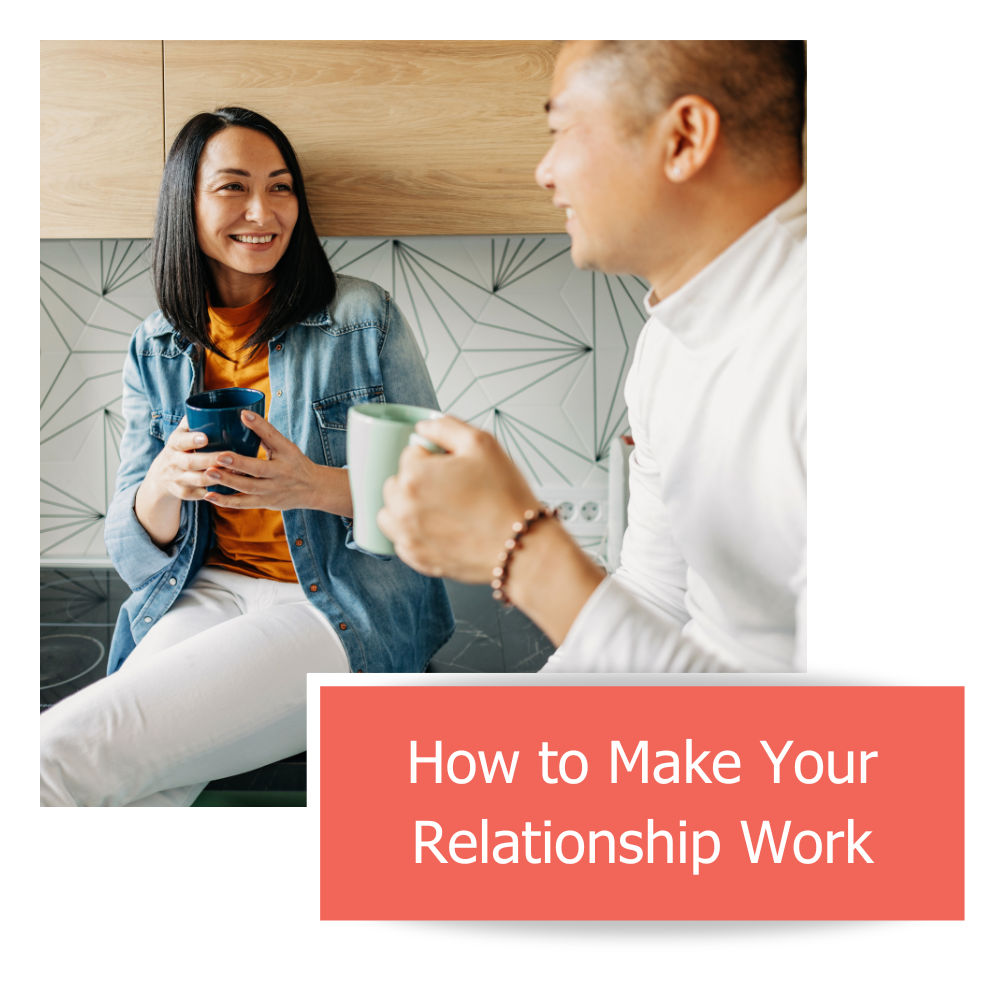While conflict is inevitable, frequent arguments will affect a relationship over time. Couples that do not effectively manage conflict will enter a cycle of fighting that is hard to break. When disagreements become more frequent and intense, they can damage the positive aspects of a couple’s connection that brought them together in the first place.
How the cycle of arguing begins
When they were dating, Karen, 42, and Owen, 44, were so ecstatic to have found each other that they focused more on their similarities than differences. They fell madly in love, got married rapidly, and never stopped to discuss their upbringing, or beliefs about issues such as finances and parenting.
When Karen and Owen’s son Ethan was born, their arguments intensified because they had more financial stress and different parenting styles. Karen is frugal, and her belief is that they need to save money to buy a home as soon as possible.
Owen, on the other hand, is a spender who feels that they work hard for their money and they deserve to enjoy dinners out and weekend getaways. Their spender-saver dynamic led to frequent fights that contributed to endless rounds of arguing and blaming that left them both feeling resentful.
After a few couples therapy sessions, it became apparent that Karen and Owen also had drastically different parenting styles. Karen grew up in a home where her mother was often checked out, too busy, or too tired to spend time with her. As a result, she placed a high premium on spending quality time with Ethan cutting down her work hours which then added to their financial stress.
When Ethan turned two years of age, he was still sleeping in the same bed as his parents some nights and this triggered frequent arguments. Owen had strong views that children should not sleep with their parents and he often criticized Karen for being too indulgent with Ethan.
Emotional Baggage Can Lead to Frequent Arguments
Couples who have frequent arguments often have baggage from the past that’s weighing them down. After a while, emotional baggage can cause them to overreact to triggers. Karen was often triggered when Owen’s purchases exceeded their budget because she grew up in a family where finances were tight. Owen was frequently triggered when Karen accused him of being careless with money because his father was conservative fiscally and criticized him for not following in his footsteps.
Over time, Karen and Owen lost sight of the loving feelings that brought them together in the first place and their anger and resentment eroded their once happy marriage.
Karen puts it like this, “We tend to get irrational and dig our heels in when we fight – and no one wins. When Owen says, “You always need to be right, I get defensive and start attacking him. Then we both get nasty, say mean things, and put each other down.”
What are your triggers?
It’s worth putting in the effort to explore your emotional triggers that can set the stage for a fight with your partner and cause frequent arguments. The more aware you are, the less you’ll be ruled by past relationships. Exploring your triggers is an ongoing process. The first step is actually to commit to the process by discussing the concept of triggers or “hot buttons” with your partner. For instance, you might reflect on how you notice a sudden shift in your emotions when you discuss finances or other sensitive topics. Describing “triggers” will help you raise self-awareness and empathy.
Going back to our example, when Karen became more aware of her triggers about Owen spending money on non-essentials, she realized that she didn’t have to worry excessively about money because they were fiscally responsible. As a result, she was able to speak more rationally with Owen about her fears of financial ruin. And they compromised by going out to dinner twice a month instead of weekly.
When couples are triggered emotionally, it can usually be traced to one or more of their deepest needs or desires that are not being met. Taking time to think about which of their needs are being threatened during a tough conversation or fight can diffuse anger. These needs include, acceptance, autonomy, attention, safety, love, being respected, being valued, and being in control.
Why Do Arguments Escalate?
“Escalation occurs when partners respond back and forth negatively to each other, continually upping the ante so that so that the conditions get worse and worse,” writes Howard J. Markham in Fighting for Your Marriage. He continues, “Negative comments often spiral into increasing anger and frustration. It’s not just the increasing emotional intensity that causes the problem: it’s the tendency to move from simple anger to hurtful comments to and about each other.”
Dr. John Gottman writes, “almost all couples exchange anger from time to time, It’s when you move from being angry and frustrated to showing contempt for the other that the greatest amount of damage is done.” Gottman explains that almost all couples argue, and conflict is inevitable in intimate relationships, but happy couples are less prone to escalation and contemptuous, nasty fights.
In a toxic relationship, the communication between partners is characterized by what Gottman calls The Four Horseman. These are communication patterns that involve contempt, stonewalling, defensiveness, and criticism. While it’s normal to have some of these behaviors in relationships, contempt is by far the most destructive communication pattern that can lead to the demise of a relationship.
In his extensive “Love Lab” studies, spanning over forty years, Dr. Gottman found that contempt directed toward a partner is criticism from a position of superiority. It’s not only putting someone down but also putting down their entire character and way of being. Underlying contempt is a negative state of mind where the contemptuous person constantly scans the environment looking for their partner’s mistakes rather than noticing their partner’s positive actions or behaviors.
Can Arguing Ever Be Healthy in a Relationship?
In After the fight, Daniel B. Wile, notes that arguing is normal in a relationship and it doesn’t mean that your relationship is doomed to fail. He writes, “Since there are always going to be fights, I recommend developing skill in recovering from them.” Wile believes that your focus needs to be on listening to your partner’s perspective, collaborating, building intimacy, and restoring safety and goodwill.
After many years of research, John Gottman discovered that discussing concerns that arise in a timely and respectful way will help couples get better at repair skills. A repair attempt is any statement or action – verbal, physical, or otherwise – intended to diffuse negativity and keep conflict from escalating. Gottman explains that repair attempts help a couple get back on track after a dispute and that “repair skills are often missed in an argument because they’re hidden in a whirlwind of negativity.”
The key to having productive arguments is to see conflict as an opportunity to learn about your partner. This includes finding ways to clear up misunderstandings and to repair hurt feelings (after regrettable incidents) by processing what happened without reigniting the argument. This way arguments will not negatively affect your relationship over time.
After several months of couples therapy, Karen and Owen still have occasional disagreements, but they’re better able to validate each other’s perspectives and they’re getting good at repair attempts. As a result, they’re avoiding the negative patterns of talking and fighting that were previously injurious to their marriage.
Impact of Arguments on Relationships
Rather than rupturing the bond in a relationship, arguments can bring couples closer and deepen their commitment. It’s possible for partners to use their disagreements to build a stronger connection if they learn to recognize destructive patterns and find ways to make their point without escalating an argument or damaging their relationship.
.








